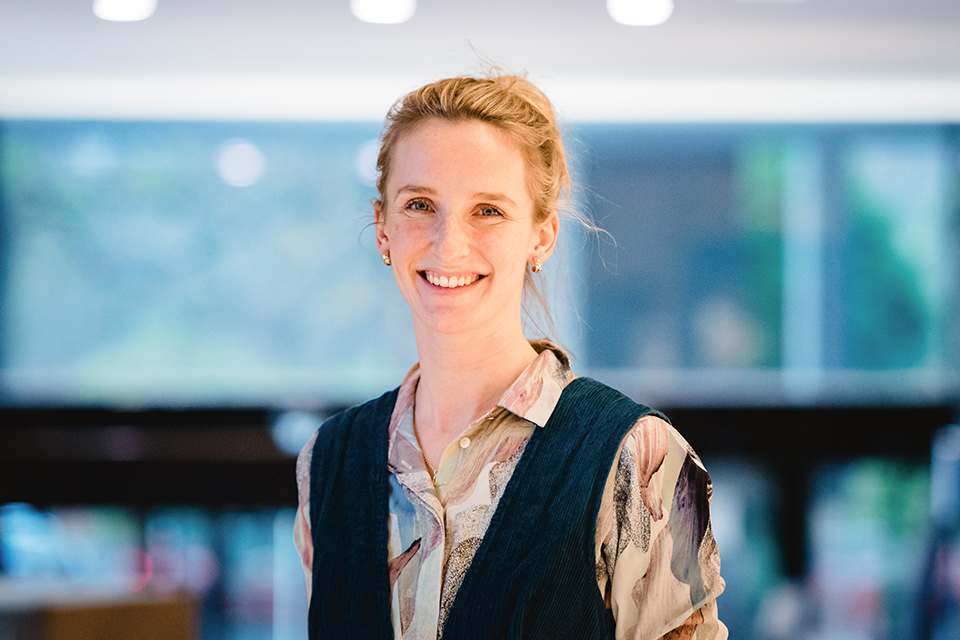
Dr Greta Wood, an NIHR Academic Clinical Fellow working in the Department of Clinical Infection, Microbiology and Immunology, has been awarded an NIHR Invention for Innovation award to develop a biosensing patch for detecting infection and brain injury markers.
Dr Wood's research shows that following hospitalisation with COVID, many patients have experienced brain fog and confusion equivalent to 20 years of normal brain ageing and that this correlated with abnormally high levels of brain injury proteins in the blood and reduced brain volume in key areas.
Working alongside Professor Benedict Michael and Dr Sanjiv Sharma, Dr Wood will begin developing a painless small adhesive skin patch with a built-in hair-like sensor which will continuously monitor markers of brain injury and infection over 24 hours.
Dr Wood says: "Our work has demonstrated that infections can have a lasting impact on the brain, but many patients tell us that their problems were diagnosed late. We hope that this low-cost skin patch will enable us to spot the earliest signs of brain injury, even when there are no symptoms. This is the first crucial step to protecting the brain during infection."
The patch (biosensor) will enable earlier diagnosis and quicker treatment to improve brain outcomes following infections such as Covid-19 and future pandemics. Biosensor technology can be applied to personalised medicine strategies to enable clinicians to confirm a specific diagnosis as well as the power to monitor the patient’s response to infection and treatment based on real-time data.
Dr Sanjiv Sharma said: “These low-cost wearable and point of care devices will offer valuable information rapidly thus facilitating early intervention.”
Professor Benedict Michael, Director of the Brain Infection and Inflammation Group, added: “This is a really exciting development. Close-to-patient clinical management technology is a major advance beyond basic lab tests. This collaboration brings together clinical academics with engineers through the Liverpool Interdisciplinary Neuroscience Centre (LINC)."
This project exemplifies the collaborative efforts across the Faculty of Health and Life Sciences, bringing together expertise from bioengineering to drive clinical innovation in the field of wearable biosensors.